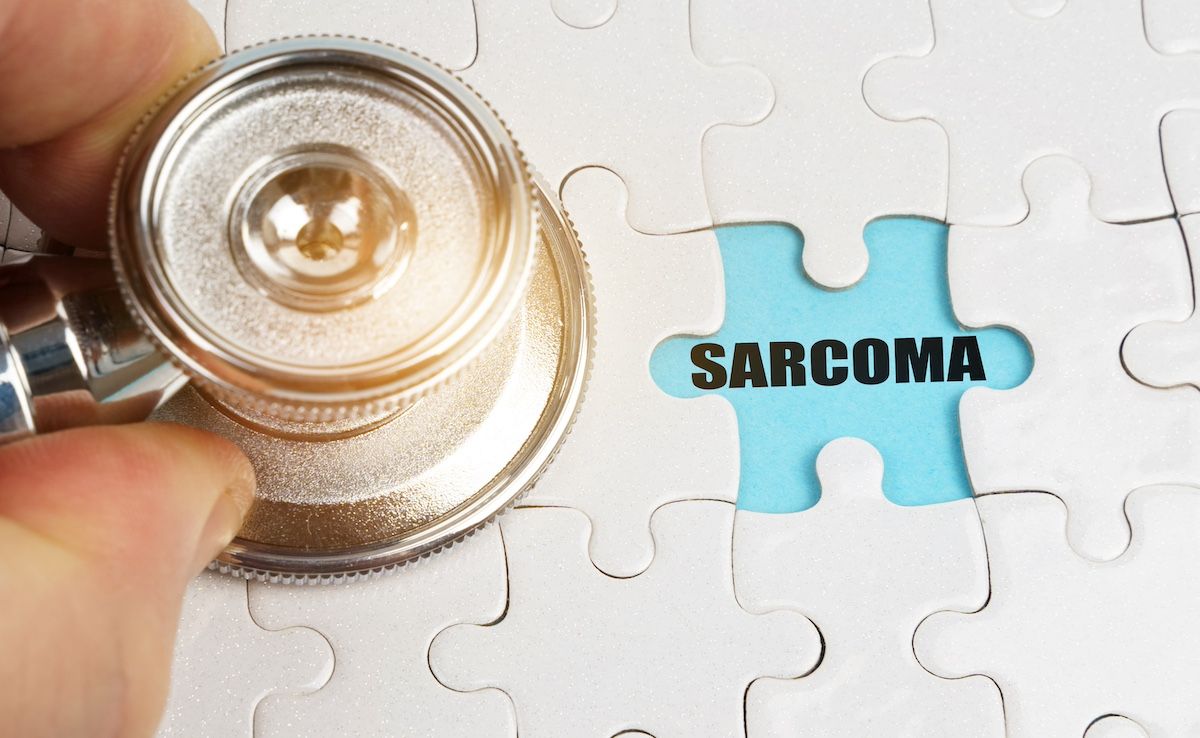Immunotherapy may be a meaningful therapeutic option for certain patients with soft tissue sarcomas (STS), but more research is needed to identify strong biomarkers of treatment response, according to a new review article.1
The article, which was published in The Journal of Cancer, highlights a number of potential blood-based biomarkers that may be associated either with a poor or positive prognosis.
STS is rare, with an incidence of just 5 cases per 100,000 people per year, the authors noted. However, the disease comprises more than 80 different histological subtypes, making it highly heterogeneous. Approximately 6 in 10 cases are diagnosed when the cancer is still localized, and such patients have a 5-year survival rate of 81%, the authors noted.2 However, when the cancer is not diagnosed until it is locally advanced or metastatic, the survival rates drop to 56% and 15%, respectively, they said.1
The standard of care for patients with STS has long been chemotherapy, despite its relatively low response rates. The lack of newer, more effective treatments is due to insufficient research into how different subtypes of STS respond to therapeutic options, the authors explained. Emerging evidence suggests that other types of therapies and therapeutic combinations may be effective in this patient group. In particular, the authors said STS may be sensitive to immune checkpoint inhibitors (ICIs). However, they said the efficacy of ICIs appears to vary by subtype, with leiomyosarcoma (LMS) and undifferentiated pleomorphic sarcoma (UPS) appearing particularly responsive to therapy. However, the authors said there are discrepancies in the data that warrant further investigation.
One way to better understand which patients might benefit from ICI therapy is to use biomarkers, such as PD-L1 expression, microsatellite instability, and tumor mutation burden (TMB). Yet, those biomarkers have limited predictive value in patients with STS. Instead, they suggested blood-based biomarkers might be a more effective tool.
The investigators noted that a low neutrophil-to-lymphocyte ratio (NLR) has been linked with better survival in patients with STS treated with the multi-tyrosine kinase inhibitor pazopanib (Votrient).3
However, circulating immune cell subsets such as CD8 T cells and monocytic myeloid-derived suppressor cells have been associated with a poor prognosis in STS.1 Circulating pro-inflammatory interleukin 6 and 8 proteins have predictive value in several cancer types, though The authors said more studies are needed to understand if they will be similarly useful in the setting of STS.
Lastly, the authors said circulating tumor DNA (ctDNA) has been studied as a predictor of treatment response for both chemotherapy and ICI therapy in STS. In the latter case, baseline ctDNA had a negative association with treatment response.
The potential benefit of better biomarker research is not only the ability to predict treatment response, but also to optimize treatment selection based on STS subtype. The authors said several of the biomarkers that have been tested have shown “consistent prognostic associations across multiple studies.” In many cases, they said, the biomarkers have also been predictive of treatment response in other types of cancers.
For those reasons, the authors said blood-based biomarkers for ICI response should be a research priority in STS moving forward.
“These predictive biomarkers could improve patient selection, reducing treatment costs by identifying patients likely to respond, and enhancing the quality of life for non-responding patients by sparing them unnecessary immune-related side effects and allowing timely redirection to alternative therapies,” they concluded.
References
1. Mannah BA, Park JJ, Lim SY. Blood-based biomarkers in soft tissue sarcoma: Implications for immune checkpoint inhibitor therapy. Int J Cancer. 2025;157(6):1031-1042. doi:10.1002/ijc.35477
2. American Cancer Society. Key statistics for soft tissue sarcomas. American Cancer Society website. Published January 16, 2025. Accessed September 10, 2025. https://www.cancer.org/cancer/types/soft-tissue-sarcoma/about/key-statistics.html
3. Mirili C, Paydaş S, Guney IB, et al. Assessment of potential predictive value of peripheral blood inflammatory indexes in 26 cases with soft tissue sarcoma treated by pazopanib: a retrospective study. Cancer Manag Res. 2019;11:3445-3453. doi:10.2147/CMAR.S191199

